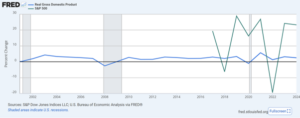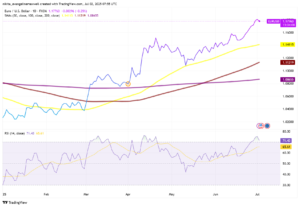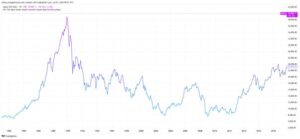The Fed’s Tightrope Walk: Balancing Labor Market Signals and Monetary Policy
As the U.S. economy grapples with weaker-than-expected job growth and substantial labor market revisions, the Federal Reserve faces a pivotal challenge. With Fed Chair Jerome Powell set to speak at the Jackson Hole economic symposium, the future direction of U.S. monetary policy is under intense scrutiny. Recent employment data and Federal Reserve minutes have added layers of complexity to an already intricate situation.
Labor Market Revisions: A Reality Check
The Bureau of Labor Statistics (BLS) recently revised its employment figures, revealing a reduction of 818,000 jobs as of March 2024— the largest adjustment since 2009. This revision highlights that the labor market has been weaker than previously thought. While these changes do not equate to actual job losses, they suggest that recent economic growth may have been overstated. Adjustments, particularly in sectors like professional services, manufacturing, and hospitality, raise concerns about the true strength of the U.S. economy and its impact on monetary policy.
Fed Minutes: Internal Debate and Growing Pressure
Minutes from the Federal Reserve’s July meeting have unveiled an internal debate about potentially cutting interest rates as early as September. Despite signs of easing inflation, the unexpected weakness in the labor market is prompting concern among policymakers. Some members of the Federal Open Market Committee (FOMC) believe that recent inflation progress and the fragile labor market warrant a rate cut soon. However, the committee chose to maintain rates in July, indicating that any future adjustments will depend on forthcoming data.
These minutes have heightened market expectations for a rate cut, with traders increasingly anticipating an imminent policy shift. Nonetheless, the Fed must carefully weigh the risks of acting too quickly, which could compromise its inflation control efforts.
Forward Guidance: Shaping Market Expectations
Forward guidance remains a key tool for the Fed in managing market expectations. If Powell hints at a more accommodative policy at Jackson Hole, it could alleviate concerns about an economic slowdown. However, the Fed must balance this with the need to preserve its credibility in managing inflation. A premature rate cut could reverse progress made in curbing inflation, while delaying action might worsen the economic slowdown.
A Delicate Balance
The Fed faces the challenge of recalibrating its approach to address the weakening labor market while maintaining its commitment to fighting inflation. Powell’s upcoming speech at Jackson Hole could offer crucial insights into the Fed’s future strategy, with significant implications for both the U.S. economy and global markets. The decisions made in the coming months are critical, and the stakes are high.





